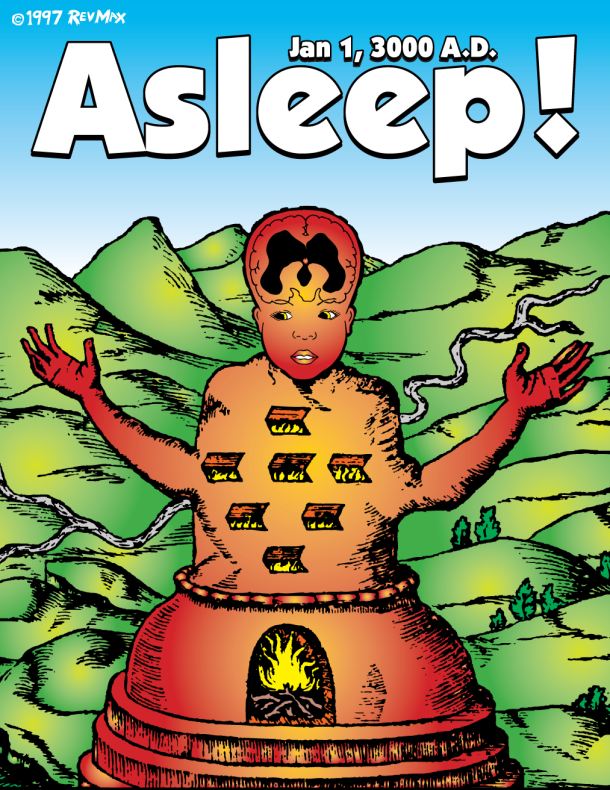Cast down from the worlds of light, Yaldabaoth carved a new home for himself out of the darkness:
“When the Ruler saw his greatness, he saw only himself; he did not see another one except water and darkness. Then he thought that he alone existed. His thought was made complete by means of the word, and it appeared as a spirit moving to and fro over the waters.
And when that spirit appeared, the ruler separated the watery substance to one region, and the dry substance to another region. And from the one matter he created a dwelling place for himself. He called it “Heaven.” From the other matter the ruler created a footstool. He called it ‘earth.'”1
The Demiurge bumbled blindly along, unaware that Sophia was secretly forming the Earth through him:
“The Demiurge supposed that he made these things of himself, but he made them after [Sophia] projected them. He made Heaven without knowing Heaven… he brought earth to light without understanding earth. In every case he was ignorant of the ideas of the things he made, as well as of the Mother; and he thought he was entirely alone.”2

If scientists like John Barrow and Nick Bostrom are correct, then the gradual emergence of intelligent life from the small pockets of negentropy which dot our universe should eventually produce demiurge-like beings able to create universes of their own. Writes Barrow:
“It has long been recognised that technical civilisations, only a little more advanced than ourselves, will have the capability to simulate universes in which self-conscious entities can emerge and communicate with one another…”3
If the simulation of entire worlds is possible, then “fake universes” should “greatly outnumber the real ones” – and what’s more, these fake universes will all contain tiny errors:
“Assuming the simulators, or at least the early generations of them, have a very advanced knowledge of the laws of Nature, it’s likely they would still have incomplete knowledge of them (some philosophers of science would argue this must always be the case). They may know a lot about the physics and programming needed to simulate a universe but there will be gaps or, worse still, errors in their knowledge of the laws of Nature… [if so, then] we should expect occasional sudden glitches, small drifts in the supposed constants and laws of Nature over time…”4
Yaldabaoth’s creation isn’t evil, it’s just a second-rate simulation – or, as the gnostic teacher Valentinus put it, “However much a portrait is inferior to an actual face, just so is the world worse than the living realm… For the form was not reproduced with perfect fidelity…”5
- ”On the Origin of the World.” The Other Bible. Ed. Willis Barnstone. Harper San Francisco, 1984. 64. [↩]
- ”The Valentinian System Of Ptolemaeus.” The Other Bible. Ed. Willis Barnstone. Harper San Francisco, 1984. 616. [↩]
- Barrow, John D. “Living in a Simulated Universe: We explain why, if we live in a simulated reality, we might expect to see occasional glitches and small drifts in the supposed constants and laws of Nature over time.” http://www.simulation-argument.com/barrowsim.pdf [↩]
- Barrow, John D. “Living in a Simulated Universe: We explain why, if we live in a simulated reality, we might expect to see occasional glitches and small drifts in the supposed constants and laws of Nature over time.” http://www.simulation-argument.com/barrowsim.pdf [↩]
- Layton, Bentley. The Gnostic Scriptures. Anchor Bible Reference Library, 1987. 237. [↩]


